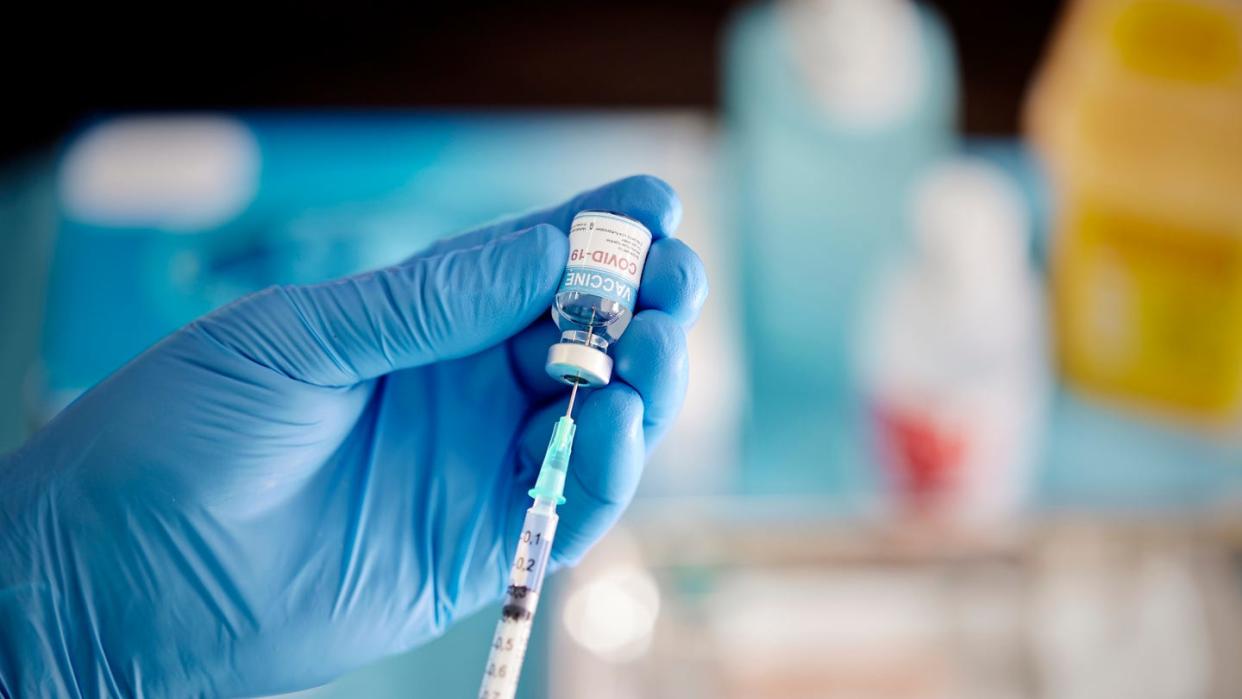Do You Need The New COVID Booster? Here's What Doctors Say

"Hearst Magazines and Yahoo may earn commission or revenue on some items through these links."
Big news in health: The Food and Drug Administration has approved new COVID-19 vaccines from Pfizer and Moderna.
The updated vaccines are targeted toward the KP.2 strain of SARS-CoV-2, the virus that causes COVID-19. This is the third time the vaccines have been updated.
“Vaccination continues to be the cornerstone of COVID-19 prevention,” Peter Marks, MD, PhD, director of the FDA’s Center for Biologics Evaluation and Research, said in a statement. “These updated vaccines meet the agency’s rigorous, scientific standards for safety, effectiveness, and manufacturing quality. Given waning immunity of the population...we strongly encourage those who are eligible to consider receiving an updated COVID-19 vaccine to provide better protection against currently circulating variants.”
So, when can you expect to have the updated vaccine available at a pharmacy near you—and who should get it? Here’s what doctors say.
Meet the expert: Thomas Russo, MD, professor and chief of infectious disease at the University at Buffalo in New York.
What is the most current COVID vaccine? Should I get it?
The most current COVID-19 vaccines are made by Pfizer and Moderna. These mRNA vaccines have been updated to more closely target the currently-circulating strains to give you better protection against serious infection, explains Thomas Russo, MD, professor and chief of infectious disease at the University at Buffalo in New York.
“This is just for the Pfizer and Moderna vaccines,” Russo said. “The Novavax vaccine isn’t ready yet.”
The FDA currently recommends that everyone aged 6 months and up get the new vaccine.
When will pharmacies get the new COVID vaccine?
Right now, it's not entirely clear. On its website, CVS says that the chain is currently removing the 2023-2024 COVID-19 vaccine from the company’s inventory and are waiting for the new vaccine to arrive. However, you can currently book a vaccine appointment for the near future.
Meanwhile, Walgreens hasn’t updated its website yet to address the new vaccine, and appears to still be offering the previous vaccine.
“Pfizer and Moderna have the green light to get the shots to pharmacies, but it’s still probably going to take a week or so to be available,” Russo says.
As for timing on when to get the vaccine, Russo says it’s a good idea to get vaccinated ASAP if you fall into a high-risk category. But if you’re considered low risk for serious complications of COVID-19, he just recommends getting the new vaccine by Halloween.
If you were infected during the summer COVID wave, Russo says you can probably wait three months from the time you were infected to get vaccinated.
How much will the new COVID vaccine cost?
It depends. “Cost is a bit of a problem,” Russo says. While most health insurance companies will cover the vaccine, if you don’t have Medicaid or insurance, you may need to pay out of pocket. “The money is gone for programs that were available for adults to get the vaccine through public health,” Russo says.
Children are usually covered through a variety of pediatric vaccination programs, but uninsured adults may need to pay. “This is another barrier to receiving care,” Russo adds.
What are the latest COVID symptoms?
For many people who are otherwise healthy, COVID-19 is causing cold-like symptoms right now, Russo says. According to the Centers for Disease Control and Prevention (CDC), those can include:
Fever or chills
Cough
Shortness of breath or difficulty breathing
Sore throat
Congestion or runny nose
New loss of taste or smell
Fatigue
Muscle or body aches
Headache
Nausea or vomiting
But if you fall into a high-risk category, your symptoms may be more severe, Russo says.
Overall, Russo recommends getting vaccinated when you can. “There is still a lot of COVID going around,” he says.
You Might Also Like
